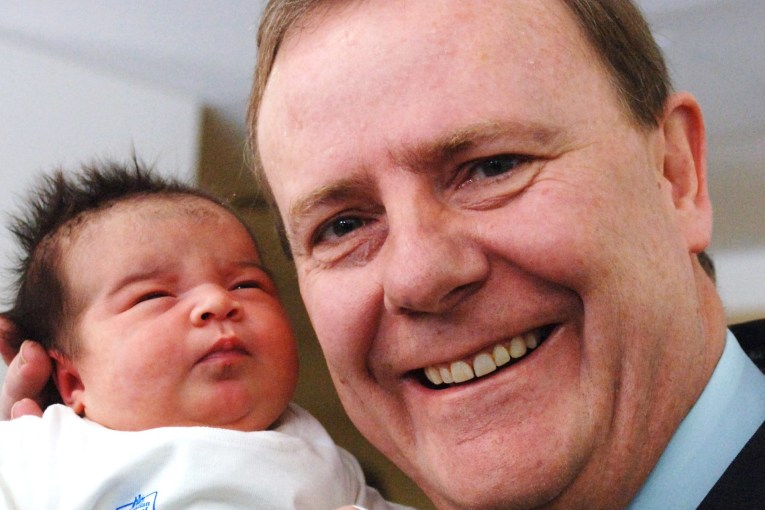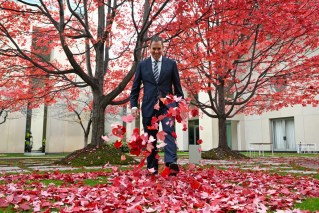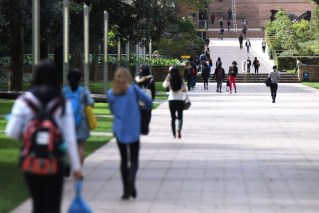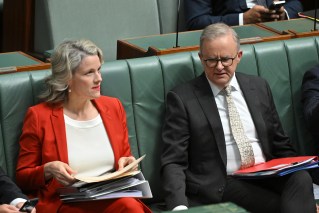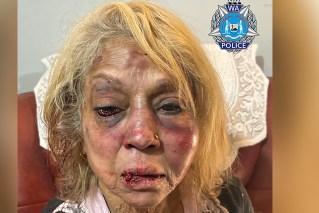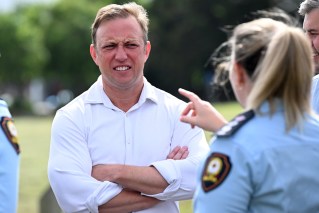Out of sight, out of mind? Queensland plan to send juvenile offenders to regions
A program that sends First Nations juvenile offenders to regional areas rather than detention centres will be expanded by the Queensland government.

Queensland Premier Steven Miles is seen arriving for a press conference at Suncorp Headquarters in Brisbane. (AAP Image/Darren England)
The on-country initiative is already on trial in the state, relocating Indigenous children to work on the land and learn life skills in a bid to break the cycle of offending.
As pressure on the juvenile detention system grows amid a youth crime outcry, Premier Steven Miles confirmed the relocation sentencing program will be expanded across the state.
Mr Miles and Youth Justice Minister Di Farmer made the announcement on Wednesday in Townsville, one of three locations where the program is being trialled.
Ms Farmer said the on-country program was voluntary.
“I need to be really clear on this – this is not an alternative to detention,” she said.
“If a young person needs to be in detention that’s where they’ll go. This will never be an alternative to that.”
The government is seeking expressions of interest from First Nations organisations to deliver the expanded Intensive On Country trial for Indigenous children.
“There isn’t one simple solution to stopping all youth offending, but evidence tells us that on-country programs have had some real success,” Mr Miles said.
“This program will provide First Nations young people with on-country experiences and culturally informed interventions, while also providing connection and an opportunity to change offending behaviour.”
It will expand on the current program trial in Townsville, Cairns and Mount Isa that began in 2020.
The program involves camps, cultural activities, mentoring and intensive case work support. Family and in-home support is also provided.
Indigenous children are taught practical life skills from cooking and cleaning to budgeting, getting bank accounts and finding accommodation.
The state government said data indicated young people who participated in on-country programs were less likely to reoffend (58 per cent) compared with those who had not (64 per cent).
The Katter Australian Party (KAP) has been advocating relocation sentencing in Queensland since 2017.
KAP state members said the government’s announcement on Wednesday had a “striking resemblance” to their relocation policy.
However they believed it lacked their policy’s key components – making the program mandatory with fixed terms, having it in a remote location and offering “intensive rehabilitation”.
“On Country 2.0 will be a waste of time if kids see it as an extended school excursion,” KAP leader Robbie Katter said.
KAP deputy leader Nick Dametto said it was disappointing only First Nations offenders were eligible.
